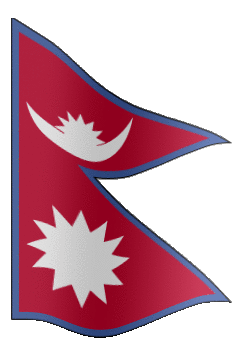Government of Nepal started hydrological and meteorological activities in an organized way since 1962. The activities were initiated as a section under the Department of Electricity. The section was subsequently transferred to the Department of Irrigation and was ultimately upgraded to Department of Hydrology and Meteorology (DHM) in the year 1988. Recently, DHM is under the Ministry of Energy, Water Resources and Irrigation. The department has it's Headquarter in Babarmahal, Kathmandu and has six Province level offices namely Office of Hydrology and Meteorology in Dharan in Koshi Province, Janakpur in Madhesh Province, Pokhara in Gandaki Province, Kohalpur in Lumbini Province, Surkhet in Karnali Province and Attaria in Sudur Paschim Province respectively. The Office of Hydrology and Meteorology in Surkhet has field office called Karnali Basin Field Office, Jumla which looks into the hydrometric network of Karnali and its tributaries in Humla, Mugu, Dolpa and Jumla districts. Narayani Basin Field Office, Narayanghat is the second field office under DHM which looks into the hydrometric network of Narayani River and its tributaries under Bagmati Province.
The main objective of DHM is to collect hydrological and meteorological data throughout Nepal, process the data, publish it and disseminate the data to users such as water resource planners, developers, researchers and data seekers for the verification of extreme hydrological and meteorological events required for different purposes. There are two fundamental goals of DHM viz. To support the overall development of water resources of the country and to generate information of extreme hydrological and meteorological events in advance and deliver such information publicly in time to save life and property of people.
DHM has the mandate from Government of Nepal to monitor all the hydrological and meteorological activities in Nepal. The Hydrology and Meteorology Policy 2024 is the major guideline which governs the plan, program and activities in the sector of hydrology and meteorology. The scope of work includes monitoring of river hydrology, water quality, sediment, limnology, snow hydrology, glaciology, weather, climate, agro-meteorology, air quality and solar energy. The Department has extended its services in the sector of General and Aviation Weather Forecast regularly. The department delivers periodical Climate Bulletin to the public through its website and generates Agrometeorological Notice for Agriculture Management and Information System (AMIS) too. Besides, the department is providing its 24/7-day service of Flood Forecasting and Early Warning to public and related agencies during the period of Monsoon Season and Weather Early Warning Service throughout the year.
As a member of the World Meteorological Organisation (WMO), DHM contributes to the global exchange of meteorological data on a regular basis. DHM actively participates in the programs of relevant international organizations, such as, the UNESCO's International Hydrological Program (IHP) and WMO's Operational Hydrology Program (OHP). In the past, DHM has hosted several regional and international workshops, symposia, seminars and meetings on different aspects of meteorology, hydrology, sediment, water quality and snow hydrology. The department is also a focal point for the Intergovernmental Panel on Climate Change (IPCC) and for the meteorological activities of the South Asian Association for Regional Co-operation (SAARC). The International Civil Aviation Organization (ICAO) has recognized DHM as an authority to provide meteorological services for international flights.
The Principal Activities of DHM
- Collect and disseminate hydrological and meteorological data and information for water resources, agriculture, energy, and other development activities.
- Issue hydrological and meteorological forecasts for public, mountaineering expedition, civil aviation, and for the mitigation of natural disasters.
- Mitigate weather, flood and drought induced disaster by providing early warning services to Disaster Management Authorities and the concerned communities.
- Conduct special studies required for policy makers and for the development of hydrological and meteorological sciences in the region.
- Promote relationships with national and international organizations in the field of hydrology and meteorology.





